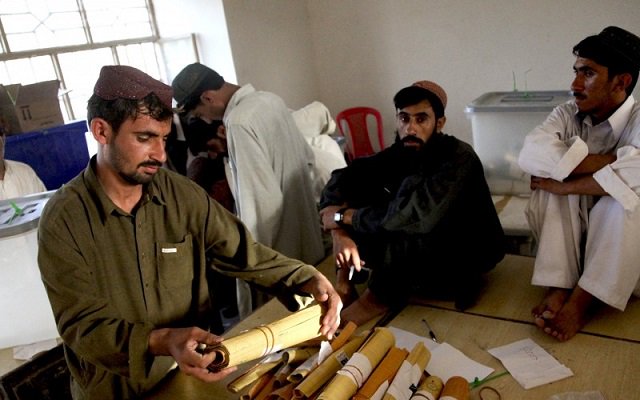UPDATE 2-Afghans shut out by polling station chaos return to vote

- Country:
- Afghanistan
Afghans unable to vote in Saturday's parliamentary election because hundreds of polling stations failed to open was given another chance to cast their ballot on Sunday after the authorities extended voting for another day.
With the Taliban operating freely across much of the country and heavy pressure from international partners for the vote to be held, the election was seen as a major test of the credibility of the Western-backed government.
Around three million Afghans voted on Saturday, a larger-than-expected turnout, but across the country, serious technical problems were reported and large numbers of polling stations remained closed, often because staff failed to turn up.
"Turnout was above expectations and we should appreciate that, but unfortunately mismanagement and other problems with the commission gave us the worst election in our history," said Mohammad Arif Rahmani, a member in the last parliament, saying there were "obvious" signs of fraud.
"This extension of the election by a day and a half was in itself clearly something that opens the way to fraud," he said.
Facing a swell of complaints, the Independent Election Commission (IEC) announced it would extend voting at 401 polling stations, which had not opened, until Sunday, despite warnings that the extended opening would stretch security forces.
"It is not an ideal scenario," one international security official said.
In the event, fewer than two thirds of the polling stations meant to open on Sunday actually did so, with the remainder closed for security reasons, IEC chairman Abdul Bade Sayad said.
Preparations for the election had been marred by organizational problems, accusations of cheating and the threat of violence from Taliban militants.
More than 120 attacks involving grenades or improvised explosive devices were reported on Saturday and dozens of people were killed and wounded across the country on Saturday. In Kabul, 15 people were killed in one suicide attack.
Many independent election observers were reluctant to work fearing militant attacks but the threat came from other groups as well as the Taliban.
Armed men loyal to local power brokers in some provinces entered polling stations by force and broke election materials and on Sunday, the bodies of four observers were found in the northern province of Balkh after they had been abducted a day earlier and shot.
Ballot counting has begun but preliminary results of the election are not expected to be announced until next month.
PARLIAMENT VOTE
The parliamentary vote was seen as a dry run for next year's more important presidential election which Afghanistan's international partners are desperately hoping will avoid the bitterness and cheating that tainted the last election in 2014.
More than a million people voted in the capital Kabul but turnout was very low in the provinces, said Naeem Ayubzada, director of Transparent Election Foundation of Afghanistan, a civic action body that has been monitoring the ballot.
He also said the decision to extend the vote opened the way for abuse, with half-filled ballot boxes left open all night in some polling centres.
"From a planning point of view, it's very difficult," he said. "It provides an opportunity for fraud."
Mariam Sulaimankhel, a candidate for the nomadic Kochi minority who have 10 reserved seats, said that along with many Kochis in Kabul, she had been unable to vote because officials did not have the lists with their names.
"We are a minority and the election commission does not care about fair representation," she said.
In addition, voting in the province of Kandahar was delayed by a week following the assassination of the powerful local police commander Gen. Abdul Razeq. The election in the central province of Ghazni was also postponed due to disagreements over the representation of different ethnic groups.
(With inputs from agencies.)
ALSO READ
Meghalaya gears up for LS polls as EVMs dispatched to polling stations in West Garo hills
J&K: Over 1,400 polling stations to have webcasting facilities in Udhampur LS Seat
Arunachal elections 2024: State ready for Lok Sabha, Assembly polls with women-centric polling stations
"150 polling stations in district will be managed by all women," Sonitpur Additional District Commissioner
102 Lok Sabha seats, 16.63 crore voters, 1.87 lakh polling stations in phase 1 elections










